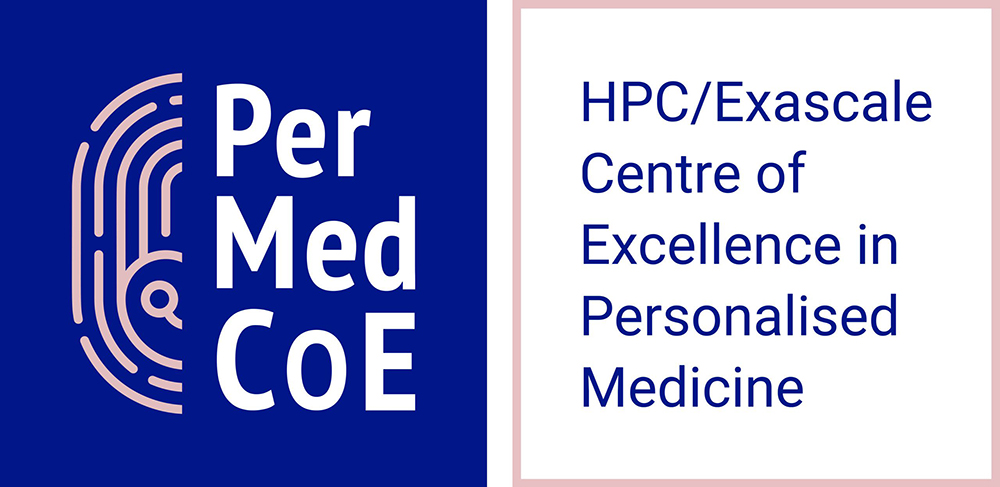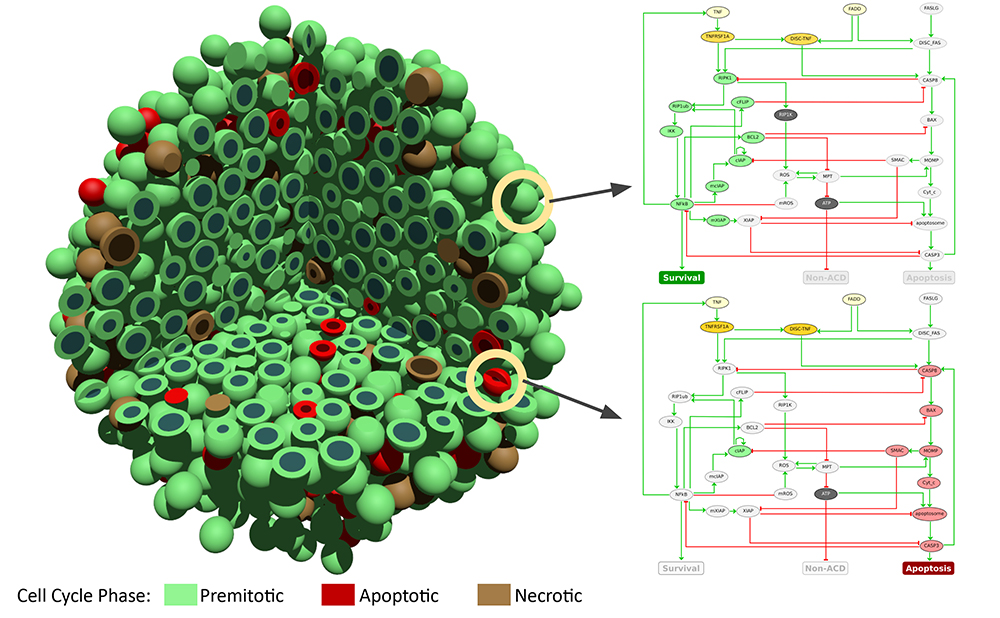PerMedCoE: Exascale-Ready Cell-Level Simulations
Rossen Apostolov, PDC

PerMedCoE is the high-performance computing (HPC) and exascale Centre of Excellence (CoE) for personalised medicine in Europe. It was launched on the 7th of October 2020, and is coordinated by the Barcelona Supercomputer Center (BSC) and funded by the European Commission.
Personalised medicine involves tailoring medical treatments to individual patients, rather than assuming that all patients displaying the same symptoms should receive the same treatment. The concept of personalised medicine is based on the idea that different patients may need differing treatments depending on factors such as their genetic background, previous medical history, age, diet and so forth. It is obviously a complex problem to establish models that take the large range of potential variables into account and to analyse existing medical data looking for patterns associated with given factors that may influence the most suitable treatment for any given individual. Consequently, the next generation of exascale supercomputers will be necessary tools for treating diseases on an individual level and making significant steps forward in the field of personalised medicine.
PerMedCoE will provide an efficient and sustainable infrastructure to support the development of personalised medicine by showcasing HPC/exascale-upgraded use cases, such as translating the consequences of single-cell omics information into actionable molecular disease models. (Omics refers to the biological fields ending in “omics”, such as genomics and proteomics.) One of the most significant contributions of PerMedCoE will be to scale-up cell-level simulations to the HPC/exascale level, which will bridge the gap between the molecular- and organ-level simulations provided by other European Centres of Excellence, such as CompBioMed (the CoE focused on the use and development of computational methods for biomedical applications) and BioExcel (the CoE for computational biomolecular research), and thus contribute to the European Personalised Medicine Roadmap.
Personalised medicine opens unexplored frontiers for treating diseases at the individual level by combining clinical and omics information. However, the performance of current simulation software is still insufficient to tackle medical problems such as tumour evolution and response to treatment at the single-cell level or patient-specific treatments. For this reason, PerMedCoE is pursuing the following main objectives:
- to optimise key software for cell-level simulations to the new pre-exascale platforms to contribute to the European Personalised Medicine Roadmap,
- to integrate personalised medicine into the new European HPC/exascale ecosystem, by offering access to HPC/exascale-adapted and optimised software,
- to design and complete a comprehensive set of personalised medicine use cases to drive the development of cell-level simulations, and
- to build the basis for its sustainability by coordinating personalised medicine and HPC communities, and reaching out to industrial and academic end-users with use cases, training, expertise and best practices.

The centre will become the entry point to exascale-ready cell-level simulation software, able to transform personal omics data into actionable mechanistic models of medical relevance, supporting developers and end-users with know-how and best practices. It will also connect simulation software developers with HPC, high-throughput computing (HTC) and high-performance data analytics (HPDA) experts at the POP and HiDALGO Centres of Excellence, and work with other biomedical consortia, such as ELIXIR and LifeTime, as well as connecting pre-exascale infrastructures hosted by supercomputing centres (such as BSC and the CSC – IT Center for Science in Finland).
To test its core applications and help prepare for exascale computing, PerMedCoE has designed five biologically relevant use cases to serve as pilot projects. These use cases were selected to reflect a broad range of computationally-demanding real-life biomedical scenarios in which to use cell-level models. Of the five cases, the pilot projects concerning the study of drug synergies and the study of COVID-19 have been prioritised. More information about these (and the other use cases) is available at permedcoe.eu/use-cases-on-drug-synergies-and-covid-19 .
PDC is participating in PerMedCoE as a strong link to BioExcel (which is coordinated by PDC) as both CoEs have complementary activities. PDC will provide scientific expertise and assistance with the usage of GROMACS and molecular dynamics simulations in general. In addition, PDC will advise PerMedCoE on how to run a successful CoE and on establishing a sustainable research infrastructure. For further information on PerMedCoE, see permedcoe.eu or contact Rossen Apostolov ( rossen@kth.se ).
